Leslie Jordan on becoming Instagram’s hottest new celebrity
A natural, hilarious storyteller, Leslie Jordan is the star of this Saturday's Gay Men's Chorus virtual summer gala

Have you heard the one about Boy George and Leslie Jordan on a horse in the Mojave Desert?
It’s not a joke — well, not exactly — but it is a funny tale when recounted by Jordan with his signature flair. It’s also exactly the kind of story that has made his life and career so rewarding.
“I was on a horse, and Boy George led me across the Mojave Desert,” Jordan says. “It was miserable!” The occasion was an elaborate film shoot to capture a 15-second TV commercial starring Boy George to promote a Japanese sake brand. “That was one of my first jobs,” says Jordan, who was uncomfortably outfitted to portray a monkey with “straws up my nose and prosthetic pieces.”
“I really enjoyed being with him,” he continues. “He’s quite the jokester. I asked him at one point, ‘How do I yell to the Japanese crew that I’ve got one more take in me? How do I say one more? That’s all, because the sand is getting into my contact lenses, and it’s getting up under these prosthetics, and it’s like sandpaper on my skin. I’m bleeding.’ And he taught me a Japanese phrase, because he’s fluent [that] I yelled. And you know what I was yelling? ‘Do you have a big dick?’ Well, they all looked at me and bowed and ran away.”
Spend any time with Jordan, and you’re sure to hear story after story just like that one. And always — always — with Jordan finding the funny. It all comes naturally. “I come from a family of really funny people,” he says. “My dad was hilarious. And my mother’s father was hilarious. So much of my comedy is storytelling. I don’t do jokes.” All that storytelling is a reflection of his southern upbringing in particular.
This Saturday, Aug. 15, the Gay Men’s Chorus of Washington will present Jordan as part of a brand-new virtual gala. Billing him as “the Quarantine Queen and Emmy-winning star of NBC-TV’s Will & Grace,” the organizers of “A Summer Soirée with Leslie Jordan” promise “hilarious stories from his many adventures in the entertainment industry.” For his part, Jordan vows to make the most of it. “I’m going to put on a tuxedo, and stand in my apartment, and virtually host a wonderful evening. They have so much planned,” he says. Indeed, gala attendees can expect performances by the chorus, an online silent auction, “special celebrity guests,” as well as appearances by its directors, Justin Fyala and Thea Kano. And all for free.
Jordan has no shortage of material to draw from as the evening’s featured entertainer, be it his colorful upbringing as a self-proclaimed “Southern Baptist celebutante” or the 65-year-old’s long and varied career in Hollywood. “It’s more sordid than a movie, okayyyyyyy,” Jordan teases, referencing his starring role in the Southern-fried cult-classic film Sordid Lives.
There’s also, of course, his latest feat, at an age when most others consider retirement: A nearly overnight rise during the pandemic to become the hottest Instagram celebrity around, with five million followers and counting. And he did it all, essentially, by doing what comes naturally. Or, as Jordan puts it, “I just talk about whatever. There is no plan. I just think of something funny, and say it, and post it.”
METRO WEEKLY: Let’s start by going all the way back to your roots. Where did you grow up? And what was your family like?
LESLIE JORDAN: I grew up in Chattanooga, Tennessee. I had an amazing, amazing childhood. Mother had me at 19, daddy was 21. There’s myself and then 22 months younger than me are identical twin sisters. We were this golden family with a beautiful mother. When I was little, I thought she was a fairy princess. She’s a bashful champagne blonde, and still at 85 she is the prettiest woman I know. My dad was very handsome, and we were just an adorable, churchgoing family. I was raised in the Baptist church, which is both good and bad. It can get a little rough if you landed in your mother’s high heels! All that’s in my past, too, any kind of anger or upset. It all made me who I am today. It was a wonderful, wonderful childhood. I’m very blessed.
My dad was in the Army. When we were little, we lived in Germany and all over. And then once I got into school, we settled back where both my mom and dad are from. When I was 11, he was flying to Hattiesburg, Mississippi, to Camp Shelby for a summer Army Reserve camp, and the plane crashed. Now that was a terrible time to lose your dad. My mom was 33, with three children to raise. There’s a bond there from that. My sisters, over the years, they’ve always lived together. Now they’re married. But they’re the happiest human beings I know.
One time, I remember after I had moved out to the San Fernando Valley, my sisters and I were having dinner. They said, “Do you like it out there?” I said, “Well, it’s a little lonely.” They go, “What do you mean?” I said, “All my friends are in Hollywood.” They looked at me like, “Oh.” I thought to myself, They don’t know lonely. Of course, as a concept they do, but they’ve always had one another. They just don’t quite get that. I thought, wow, that’s a great way to go through life, always having that person.
MW: When did you come out?
JORDAN: I told my mom when I was about 12 years old, in the ’60s. Her only reference was Liberace, who never came out, or Paul Lynde, being snarky in the center square [of Hollywood Squares]. Her advice to me was pretty sterling. I thought that she might pull her Bible out, because she’s pretty devout, but she just said, “I’m so afraid Leslie, if this is the path you’re going down, that you’ll be subject to ridicule. I don’t think I could bear that. Perhaps you should just live quietly.” Well, here I am!
She did the best she could with the light she had to see with — that’s what my spiritual advisor said. And I love that. I started telling people in high school. I would say, “I’ve got this big thing to tell you: I’m gay!” I got the same reaction every time. They would look at me like, “Duh! Ah, yeah, what else? You’re gay and you’re a murderer?” I was a very popular kid. I learned very early I could keep the bullies at bay if I could make them laugh. I was the funny guy [with] a lot of inner turmoil. My main inner turmoil was the spiritual. I wanted to be a good little Christian boy, but yet you have these thoughts, and these desires. And you’re just like, “Oh my God! I’m going to go to hell.” It was a struggle. I’ve been baptized 14 times! Every week the preacher would say, “Would the lost sinner come forward?” I’d think, “Oh my goodness. I was behind the barn with that boy. I’d better go down there.”

MW: You’re still very close to your family.
JORDAN: We’re very supportive of one another. The greatest thing I ever did as an adult was buy them this beautiful two-story, four-bedroom townhouse. God, what you can get in Chattanooga, Tennessee!
MW: Is that where you were living at the start of the pandemic?
JORDAN: Well, I go there quite a bit, and I saw it coming. I thought, “They’re going to make us stay home. They’re going to make us stay in. [But] there is no way I could hunker down with my mother and sisters.” So I rented a bed and breakfast. [And that’s where] I started posting on Instagram twice daily. For 80 days I did two posts a day. And I have a gobsmacking 5.1 million followers.
And it’s all coming to fruition. I’m getting jobs [that] I really cannot talk about. I got this top-secret job that is just amazing. They’ll be announcing it very, very soon, but they’ve sworn me to secrecy. Then I’m starting [shooting] a big television series for Fox in October with Swoosie Kurtz, Mayim Bialik, and Cheyenne Jackson. A bunch of wonderful actors, and it’s adorable. It’s called Call Me Kat. Mayim Bialik and a lady named Darlene Hunt created it. It takes place in Louisville, Kentucky, and it’s very southern. It’s about a mother-daughter. Swoosie Kurtz plays the mother [and] is very fancy, and goes to the races. Then she’s got this 38-year-old daughter, and she’s just a little horrified and desperate to get her daughter married. Mayim Bialik says, “I’m fine mom. I’m happy.” To spite her, she takes her dowry and buys a cat café. I run the cat café.
MW: Do you like cats in real life?
JORDAN: I do love cats. I’m the pussy wrangler. I don’t have a cat right now — I’m 65 and I travel too much — but my sisters have cats. We’re big cat people. We’ve spent the last two years dealing with a feral cat problem in their neighborhood, and we’ve got them all now. We catch them and we trap them, and then have them fixed, and then release them.
MW: Speaking of animals, you also grew up around horses, right?
JORDAN: Yeah. I rode my whole life. I got my first pony when I was four, and I rode and I rode. I just went to Kentucky and took a clinic with some of the best American saddlebred instructors. I’m really getting into it. I may show — I may buy a horse and go to horse shows.
MW: Is that what you wanted to do before acting entered the picture?
JORDAN: I wanted to be a jockey with racehorses, which is a whole different breed. I did that for many, many years. I never became a jockey, I was an exercise rider, where you get on the horses in the mornings and exercise them. I was very involved in that world for years before I started acting.
MW: I know we can’t talk about the top-secret show, but I want to clarify something. Do you think you got that because of your success on Instagram?
JORDAN: I know I did, because for the first time, my contract involved how I can take my Instagram followers and help. I’ve never had that before. We went back and forth, because I said, “Look, I don’t post to push things. That’s part of my success, that I just post funny things.” I’ve been approached by companies where I could have made a lot of money pushing their products, but I don’t do that, I’m having too much fun. We worked it all out, as long as I’m doing fun things. While I was on the set this last week…they would come and say, “You can’t post it.” I said, “I’m not going to post it. I’m banking it, so I could post it [later].”
Anyway, when you get involved with these big studios — and this is an app, which I don’t even quite know what that is! They have a publicity department, and they have a plan, and they’re rolling it all out. I wish I could talk about it, it’s a lot of fun. It’s something sweet. I’ve been in show business a long time, and I could tell by about day three, I said, “Look, we’ve got something here.”
MW: I guess it’s fair to say you’ve become a fan of social media, or Instagram at least.
JORDAN: Well, I wasn’t. I was on The Cool Kids with Vicki Lawrence, Martin Mull, and David Alan Grier. I’d say something funny and the girls in the publicity department kept telling me “Post that. Post it.” I said, “I don’t know what you mean.” They go, “You don’t have Instagram?” I go, “No.” Well, they signed me up, and within two or three days I had 20,000 followers, and I was just excited. They said, “Oh, that’s nothing. You’ll get more.” Then Megan Mullally from Will & Grace reposted, and I had 80,000. I said, “Oh my gosh, 80,000 people!” And then I started posting during the pandemic. I was so real about it, just being locked down and going crazy. I started that way — “Well shit, what are y’all doing?” It became a catchphrase. It’s a little arduous right now, only because I also have a book deal that I got from my Instagram — which I also can’t talk about. This is crazy, but I am writing. They’re going to roll it out pretty soon. I want my stories to go into my book.
MW: Will it be a memoir?
JORDAN: No, I had a memoir, My Trip Down the Pink Carpet, where I went into all about growing up gay in the Baptist church. This is more just stories of me now, current day, more like essays. In the vein of David Sedaris, something like that.
MW: A few months back you participated in a Sordid Lives virtual reunion and performance. How did that go?
JORDAN: What we did was, we read it virtually. It seemed to me, it didn’t have the magic — I don’t know. You know what, it’s hard. Everything is done virtually, so you’re sitting in your bedroom. You see the other actors. But because my particular part of that had to be pre-taped because of scheduling, they were all live and it looked like I was live, but I had already taped my part. They went on Instagram Live, but I wasn’t there. The magic of Hollywood! But I had pre-taped Brother Boy’s parts and all my scenes with Rosemary, Dr. Eve. I’ve done a lot of those Zooms. It just drives me crazy. I want to be in the room with you. I want to see you, I want to hug you. I’m really having a hard time with it.
I walked back in this week onto a set, to a whole new world. We were at a gated studio. You pulled up to the gate, you had to go on this thing called Work Care, and do a morning check in. “Do you have a temperature? Have you shown any signs?” Then you get it on your phone, your work clearance. They take your temperature. We had daily COVID tests — daily. I have had so many Q-tips up my nose, I’ve been sneezing all weekend. I can’t take another Q-tip up my nose. We had on-set masks, absolutely. The make-up and hair [people] had gloves. I thought, “This is it. It may be like this for a long time.” You just don’t know. But it was a whole new way of working. Of course, we were allowed to lower our masks, and take them off when we were working, but the minute that we finished, they went back up. They were very careful with social distancing. We had plexiglass shields between us. It was so bizarre.
MW: It seems likely that we’ll be facing such drastic measures for another six months, or more.
JORDAN: I think so, unless there is some sort of vaccination or something. It’s not going to just go away. When people ask me about it, I say, “Listen, when this all started, I thought, ‘I’ve been through this before, with the AIDS epidemic.’ What happened was, we knew as a community we weren’t going to get a lot of help. We thought, ‘We’re going to have to take care of our own.'” That was the birth of Project Angel Food, and AIDS Project Los Angeles. I was around during all of that. We came out of it, I feel, a stronger community. There was more of a sense of us as a community. We’re going through the pandemic as a worldwide community — perhaps we’ll come out of this a little stronger, and more willing to reach out to one another, to help one another. I’m trying to look on the good side of it.
MW: I’m with you on that, although I would have thought by now we would have seen signs of that. Since you mentioned it, the AIDS epidemic tracks pretty closely with your time living in Los Angeles, right?
JORDAN: Yeah, I got to L.A. in 1982, and West Hollywood was in crisis. You’d go to the bars every night — we were out every single night. In the early days, people would lose weight really quickly — the first sign. You’d see somebody was gaunt, and you didn’t know what to say. You just did not know what to say — but you knew they had it.
MW: That must have taken a real toll on you emotionally and psychologically. But you survived, which is something.
JORDAN: I think those of us that came through it have a responsibility. I’ve done a lot of fundraising, and a lot of charity work, and giving up my time for that. There is a sense of responsibility, because listen — I was no angel. I was acting out in unsafe ways, that’s for sure. But I didn’t get it.
MW: And I take it you haven’t gotten COVID-19 either?
JORDAN: No, I haven’t. I’m healthy as a horse. In the beginning, I thought, “Oh my God, I’ve got to get checked.” Because I’m a little bit of a hypochondriac. We have a wonderful clinic for the Screen Actors Guild. For $25, you can get everything from a facelift to a colonoscopy. I’m over there so much, when I walk in, they go, “So what now, Mr. Jordan?”
MW: Let’s talk a little bit more about your career overall and highlights from the past. Do you have a favorite memory? A favorite show? A favorite costar?
JORDAN: I’d say my best memories are of Sordid Lives. We were able to take that from a play to a movie to a television series. That’s pretty spectacular, to take a character all the way through that. And I knew the minute I walked on the Will & Grace set and threw my first line at Megan Mullally, I thought, “This is going to be verbal ping pong. This is going to be fun.” I have to say that working with her has been an amazing experience. She’s a brilliant, brilliant comedian. Those are probably my two best memories — Sordid Lives and Will & Grace.
Standing on the set of American Horror Story with Lady Gaga for months — I got that, too. George Clooney, I did a series with him called Bodies of Evidence. It didn’t last very long. That was even before E.R. It was so long ago. I did a series with Billy Bob Thornton for years called Hearts Afire by Linda Bloodworth-Thomason. I’ve worked with the best. I think the wonderful part is that I’ve done everything I set out to do. I had $1,200 that mama pinned into my underpants when, on Valentine’s Day in 1982, I got on a bus, and I went to Hollywood. I had a degree that I couldn’t even pronounce when I got off that bus in Hollywood. I said, “the-AA-ter.” They said, “It’s theater.” “That’s what I said, the-AA-ter!”
MW: So your Southern drawl was a hurdle right off the bat. What about in the decades since, has it gotten in the way at all? Have you tried to tame it?
JORDAN: I’ve been asked many, many times, but I can’t. I’ve tried. It’s a marketable package. The only time I got in trouble, I was playing a Ferengi, which is a character from outer space on Star Trek. They put 40 separate prosthetic pieces on me, and I waltzed onto the sound stage and delivered my first line, and they just fell on the floor. The director said, “This is not ‘Deep South Nine,’ it’s ‘Deep Space Nine.’ You’ve got to get that Ferengi north of the Mason Dixon.” I had to work with a linguist, who I didn’t get along with. She was such a bitch. She said, “Mr. Jordan, feather doesn’t have four syllables!”
MW: She sounds like a ringer for the antigay conversion therapist who antagonized your character in Sordid Lives.
JORDAN: Exactly. She was mean to me.
MW: I like the way you describe your accent as part of your “marketable package.” It’s part and parcel with being openly gay and naturally effeminate — on a good day, anyway. Do you think it’s cost you any roles or jobs you tried out for? Did you ever try to suppress it?
JORDAN: I tried. I remember, believe it or not, I was being considered as a hockey coach when they were [casting for the 1992 movie] The Mighty Ducks. Early on, I wasn’t quite as typecast as I am now. Young actors say, “I don’t want to be typecast.” Yes you do! Yes you do! The minute you’re typecast, you work. All the shit they teach you in acting class, where you can do a stretch — that’s not going to happen. That happens for Robert De Niro and Meryl Streep. It ain’t going to happen for you. You’re going to play what you are. If you’re a gay man, you’re going to play a gay man.
Can you play a straight man? Well absolutely. But I can’t, really. I used to, and I was being considered, I swear to you, for [the part played by] Emilio Estevez in The Mighty Ducks. Why on earth would they consider me for that part? My agent said, “Look, you’re out of the running. They’ve decided to go another way.” I said, “Because I’m so sissy!” He said, “No, no, no, no. They just had some problems with your southern accent. It’s supposed to be New England.” I mean, I could have been in The Mighty Ducks had I been a little butcher, and not so southern. My career would have taken a different trajectory.

MW: You’ve played a straight character before though.
JORDAN: I have. I went to England to do a TV series, Living The Dream. Very early on, I thought the character was probably gay. They didn’t say yes or no. Then I saw in some of the future episodes where I had a little bit of a crush on the lead. Her name was Leslie Sharpe. I said, “Oh, so he’s not gay?” They go, “Oh God, no.” I thought to myself, it’s different over there, because so many European men, you think are gay. I don’t think they’re raised quite with the macho thing we are. I was told when I was little, “Don’t cross your legs.” My daddy would tell me, “Little boys don’t sit like that. Little boys don’t do this, don’t do that.” We were raised that way, but I don’t think you have that there. They all seem gay over there.
MW: In 2014, a few years before Living The Dream, you were also seen on British television — as a contestant on Celebrity Big Brother UK. What was that like?
JORDAN: Worst experience of my life. I’ll tell you exactly what happened. I had some problems with the IRS. I still owed them for something, I can’t remember. And I couldn’t get that damn bill paid off…. I was really panic-stricken about it. The phone rang, and I had been offered five episodes of American Horror Story: Freak Show. And I didn’t make a lot of money on that show, and I thought, “I don’t know that I can get it paid off with that.” Then the phone rang, and my manager said, “You’ve been offered a reality show.” I said, “No, I don’t want to do that.” He said, “It’s Big Brother UK.” I said, “No, I’ve seen that show. They lock you in a house. No!” He said, “Leslie, the initial offer is $150,000.” I said, “Well, fuck Ryan Murphy! I’m going.”
I went over there, and the minute I got in that house, I thought, “This is the biggest mistake I’ve ever made in my life.” I really had a hard time with it. I fought with everybody, I fought with [eventual winner] Gary Busey — I tried to spit on him, because I thought he spit on me. I mean, just insane behavior on my part. I’m self-diagnosed, but I am radically hypoglycemic — I have to eat little bits along the way or I have sugar drops, and I get mean! My mother has noticed it, and said, “Have you had sugar? Why are you acting like that?”
Anyway, I got kicked out [of Big Brother]. They kicked me out! But I got my money. And my manager at the time was so smart. They said, “If we kick him out, we have to bring him back for the finale.” My manager said, “It’s only 28 days. If you kick him out, keep him. We don’t want him back here in L.A. Keep him over there.” So when I got kicked out I got a two-week vacation in London. I was put up in a beautiful hotel. They gave me £100 a day to eat on. I could go to these fancy restaurants.
That’s the number one show in Europe, so I thought maybe it would segue into something. I thought, “I’ll be able to do my one-man show all over Europe.” But it didn’t — it was just a bad experience all around. Except when I came off the show [but still in London], it was like I was Elvis. They would scream when they’d see me.
MW: I’ve also heard you say you get recognized often here in the states.
JORDAN: I sure do. A lot. I used to love to sit at Starbucks and read the paper. But I can’t do that anymore. People, they line up. They used to want autographs, now they want a picture with you, and everybody has a camera. It’s, “Just real quick Mr. Jordan, can I get a picture?”
MW: And “real quick” turns into five minutes, or longer.
JORDAN: Exactly. They will tell you things. But you can’t complain, it comes with the dinner.
MW: What would you want to say about your future, or what are you hoping for?
JORDAN: Here is what I’m hoping. I’m hoping that Call Me Kat, my series with Mayim Bialik, runs about eight years. I was in Louisville, Kentucky, last week looking for show horses. Outside of Louisville, there is a town called Simpsonville, the American saddlebred capital of the world. You could buy a farm for like $800,000. A cute little farm with a house, and a barn, and the acreage. I think you would never hear or see from me again! I would do my television show, and then on my break I would go and ride my horses, which I think is a wonderful way to grow old.
MW: So you think you might retire there?
JORDAN: Well, I’ll never retire. I will always have a place in L.A. And I want to work longer than Betty White, that’s my goal. I’m going to still be working in my nineties. I want to work forever. There is no way I could retire.
But I would have a place to go — to get back to the south, get back to my roots. Get where you can order sweet tea, and they don’t look at you funny like, “Well, there’s the sugar over there.” “No, I want sweet tea!”
The Gay Men’s Chorus of Washington presents the virtual fundraising event “A Summer Soirée with Leslie Jordan” this Saturday, Aug. 15, at 7 p.m. The gala’s auction is open until Sunday, Aug. 16, at midnight. Free but registration is requested. Visit www.gmcw.org.
Follow @thelesliejordan on Instagram and other social media platforms.
Support Metro Weekly’s Journalism
These are challenging times for news organizations. And yet it’s crucial we stay active and provide vital resources and information to both our local readers and the world. So won’t you please take a moment and consider supporting Metro Weekly with a membership? For as little as $5 a month, you can help ensure Metro Weekly magazine and MetroWeekly.com remain free, viable resources as we provide the best, most diverse, culturally-resonant LGBTQ coverage in both the D.C. region and around the world. Memberships come with exclusive perks and discounts, your own personal digital delivery of each week’s magazine (and an archive), access to our Member's Lounge when it launches this fall, and exclusive members-only items like Metro Weekly Membership Mugs and Tote Bags! Check out all our membership levels here and please join us today!






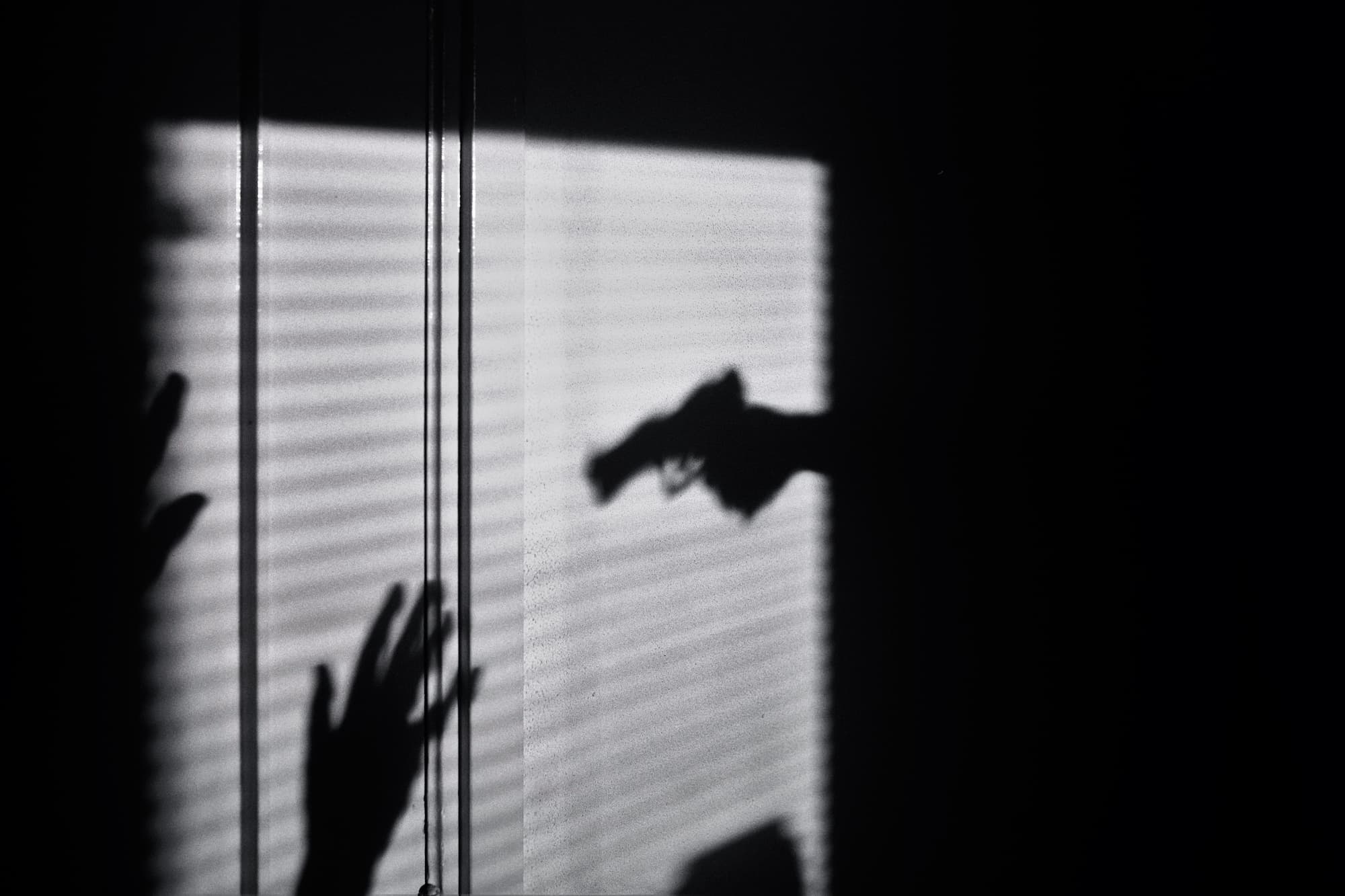
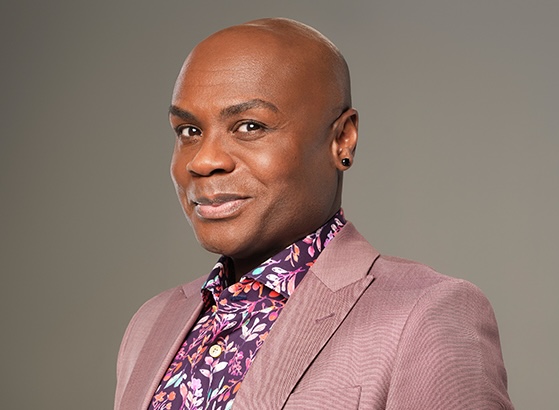
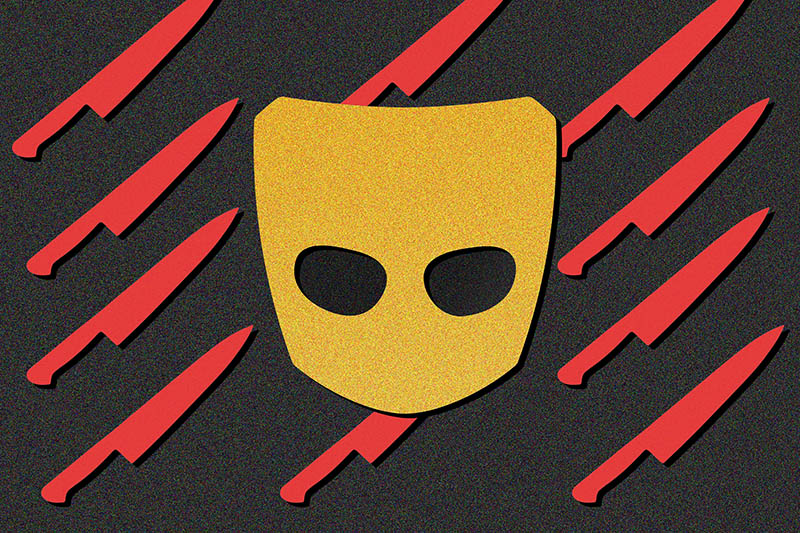













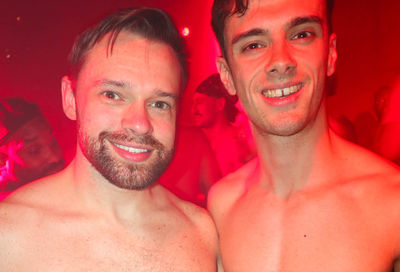
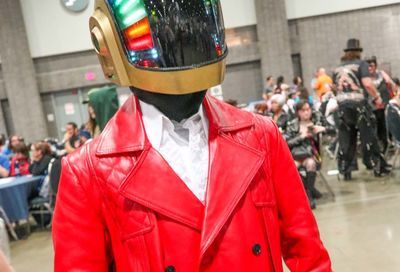
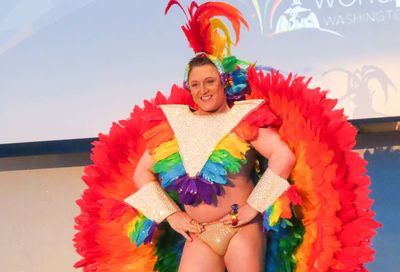
You must be logged in to post a comment.